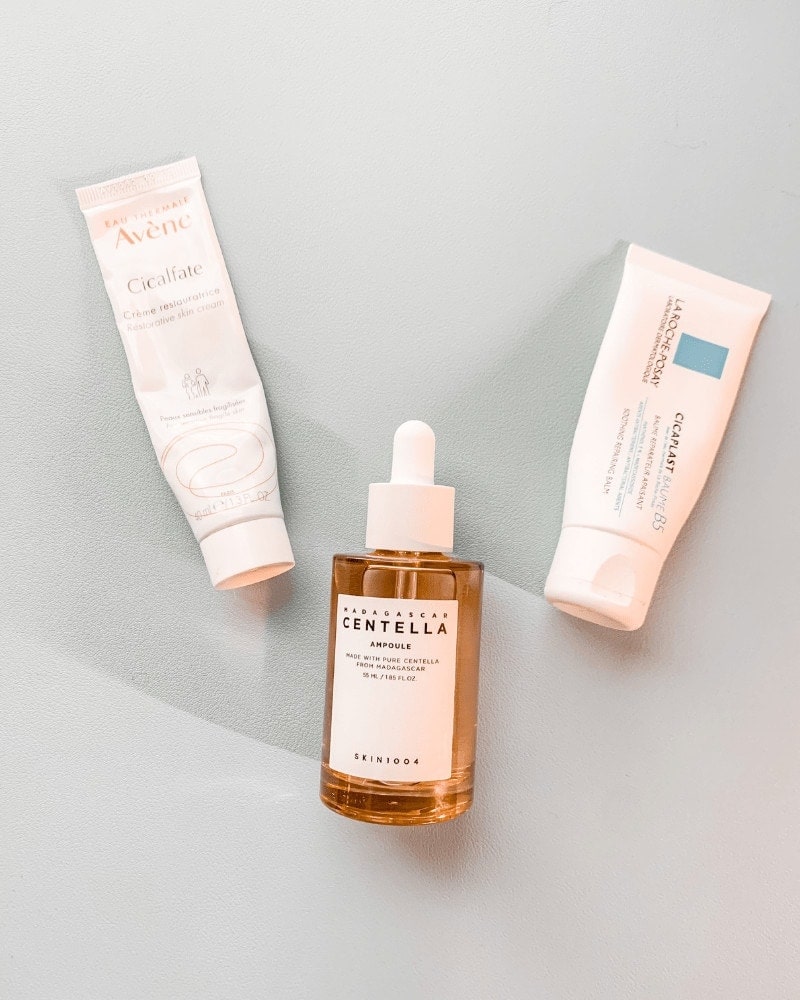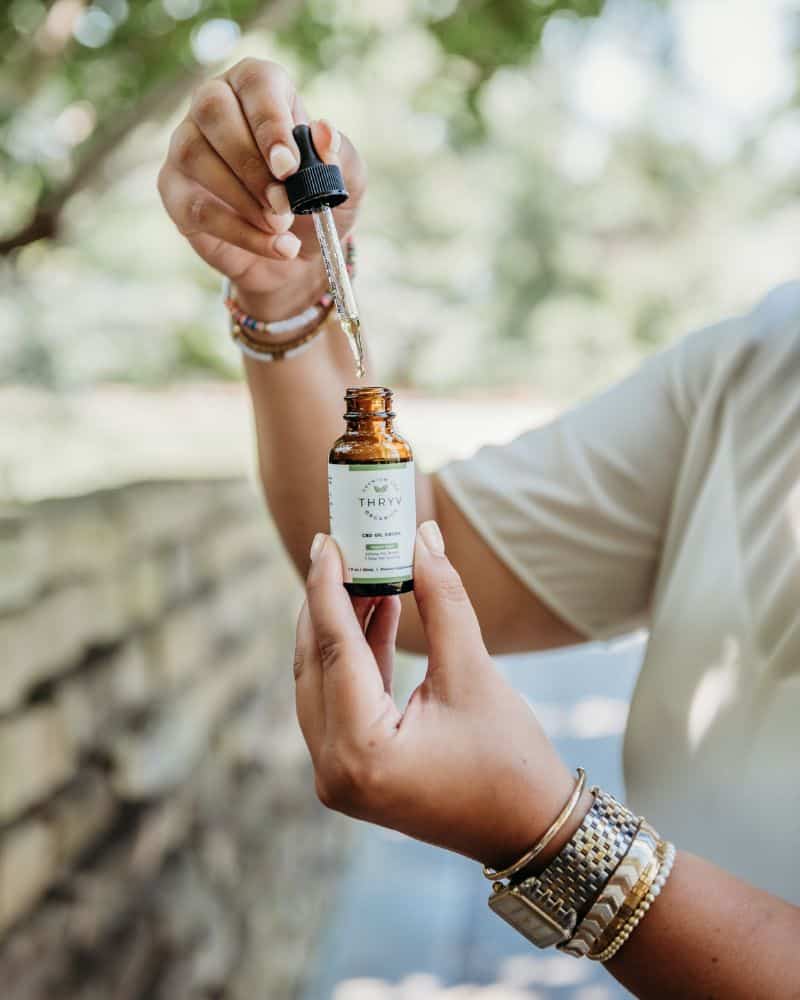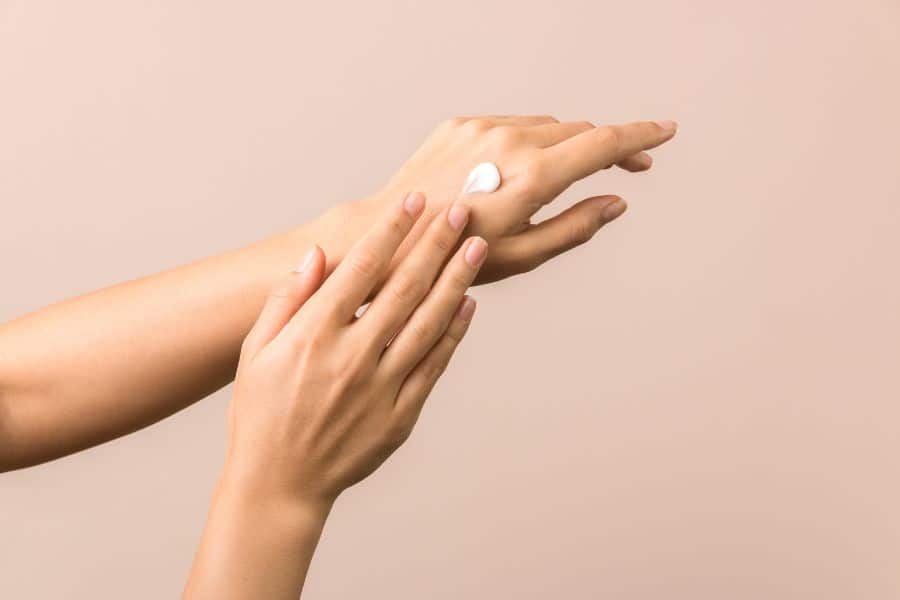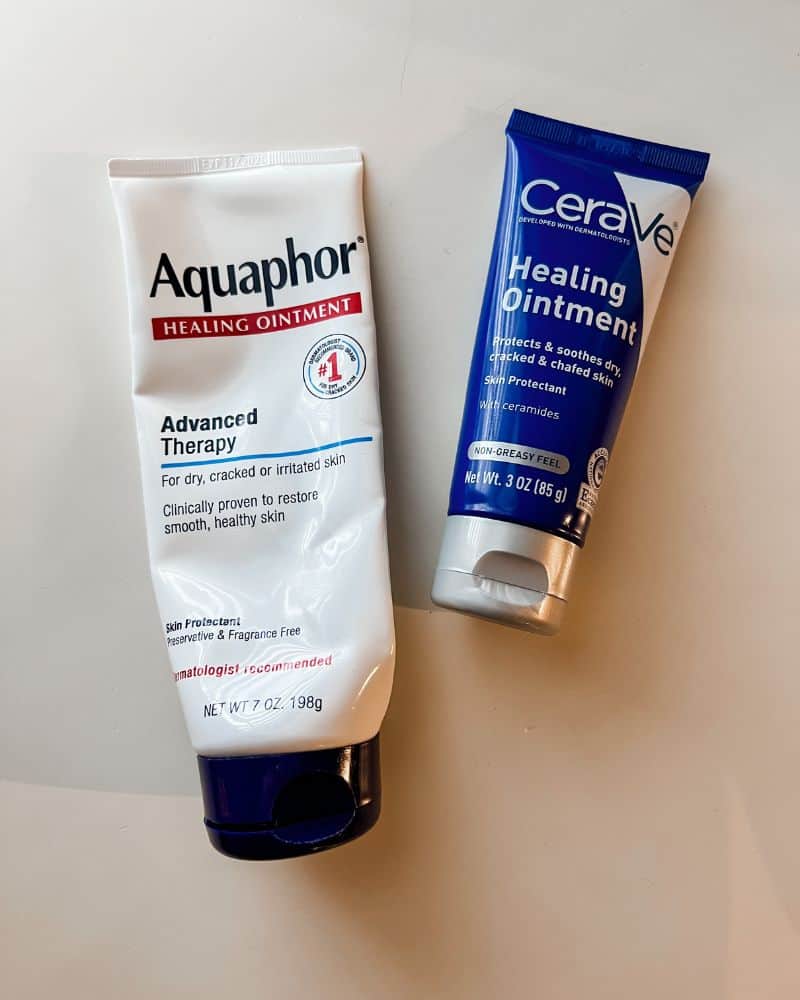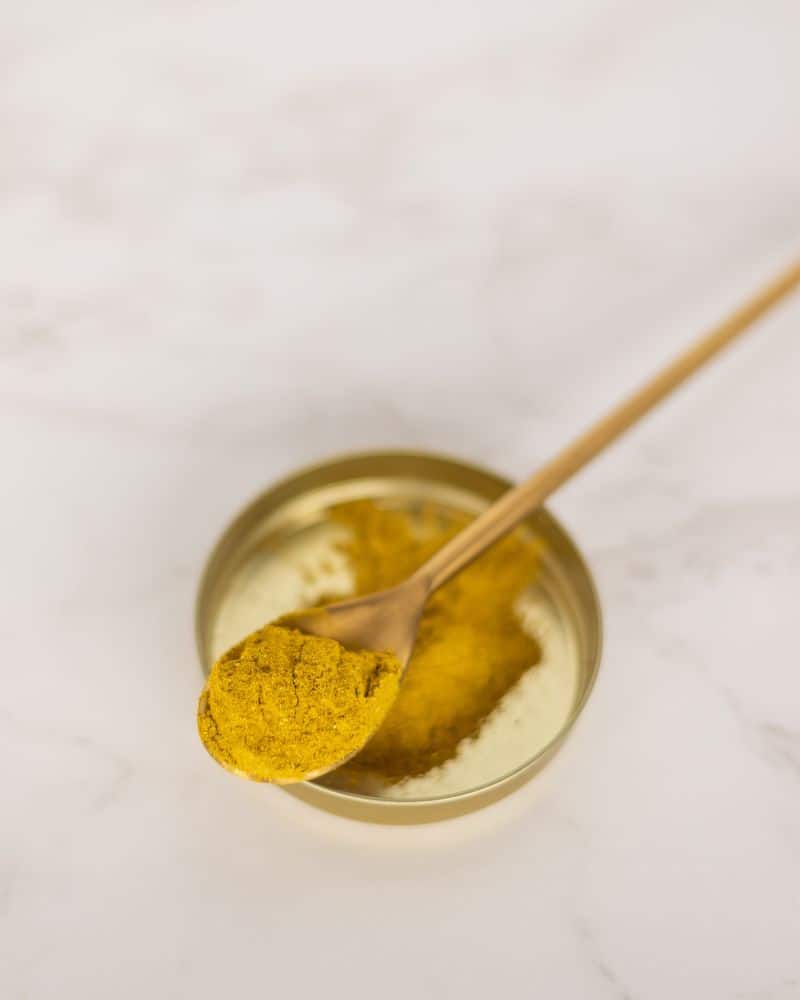Does Almond Oil Clog Pores?
This post may contain affiliate links.

Almond oil is a popular ingredient in many skin care products. It’s known for its nourishing and hydrating properties and can help to soothe, protect and repair the skin. But before you start slathering it on your face, you might be wondering: does almond oil clog pores? Is almond oil safe for acne-prone skin? Keep on reading for an in-depth look at the comedogenicity rating and fatty acid profile of almond oil to determine if almond oil is really safe to use.
What Is Almond Oil
Almond oil is a light, nutty-tasting oil that is extracted from almonds. It is used in cosmetics, skin care products, and cooking. Almond oil is said to be beneficial for the skin because it is high in vitamin E and contains fatty acids that help to moisturize the skin.
Almond oil is derived from the kernels of sweet almonds. Almonds are a type of tree nut that contains lots of healthy fats, proteins, vitamins, and minerals. The oil is extracted from the kernels by either pressing or grinding them.
It is used in cosmetics, skin care products, and cooking. Almond oil is said to be beneficial for the skin because it is high in vitamin E and contains fatty acids that help to moisturize the skin.
But almond oil isn’t just beneficial for the skin! Almond oil and its counterparts,like sweet almond oil, are anti-inflammatory and help to improve cardio health by reducing cholesterol levels.
So how is almond oil so beneficial for the skin and body? It’s rich in vitamins like vitamin d, vitamin e, minerals and more. Almond oil helps to protect the skin’s moisture barrier, defend against UV rays and environmental aggressors and soothe irritation.
Benefits of Almond Oil

- Soothing – Thanks to its high concentration of Vitamin E, almond oil is very soothing and a great choice for those with sensitive skin or skin conditions like eczema or psoriasis
- Anti-bacterial – Almond oil has anti-bacterial properties, making it great for acne-prone skin
- Nourishing – Almond oil is very nourishing due to its high concentration of Vitamin E and fatty acids that help to nourish and protect the skin barrier
- Moisturizing – Almond oil is a great choice for those with dry skin as it helps to lock in moisture and keep the skin hydrated and soft
- Anti-fungal – Almond oil has anti-fungal properties, making it great for treating fungal skin conditions like athlete’s foot
- Fades hyperpigmentation – Almond oil can help to fade dark spots and hyperpigmentation like acne scars and sun spots, thanks to its vitamin E content
- Anti-inflammatory – Almond oil has anti-inflammatory properties that can help to soothe irritated skin and reduce inflammation associated with pimples or other inflammatory skin conditions
Disadvantages Of Almond Oil On Face
As with any skincare ingredient, it has the potential to clog pores, cause acne or irritate your skin. While almond oil is generally pretty safe, there’s always a chance of a reaction.
Almond oil can cause an allergic reaction or lead to clogged pores and acne in some individuals. This is why it’s important to patch test before using it on your entire face.
The Comedogenicity Scale
Now I know you’re probably wondering will almond oil clog my pores? Well before we dive into that, we need to take a look at the comedogenicity scale. This is a measure of how likely an ingredient is to clog pores.
The scale goes from 0 – 5, with 0 being non-comedogenic (meaning it won’t clog pores) and 5 meaning it is highly likely to clog pores.
The comedogenic scale simply measures how likely a product or ingredient will clog pores. Here is the comedogenicity scale:
The comedogenic scale ranges from 0-5.
0- Does not clog pores
1- Low chance of clogging pores
2- Moderately low chance of clogging pores
3- Moderate chance of clogging pores
4- Fairly high chance of clogging pores
5- High chance of clogging pores
In general, anything that’s rated 0-2 should be fine to use and shouldn’t cause any major issues. The big thing for acne-prone skin is to be cautious with anything rated a 4 or 5.
However, it’s important to note that just because a product has a low comedogenicity rating, does not mean it won’t clog pores or cause breakouts. And vice versa, just because a product or ingredient has a high comedogenicity rating, does not mean it will clog pores or lead to acne.
Ingredients with a high comedogenicity rating are more likely to cause these problems, while those with a low comedogenicity rating are less likely to do so.
Does Almond Oil Clog Pores?
Now that we’ve taken a look at the comedogenicity scale, let’s answer the question: does almond oil clog pores?
The answer is no, almond oil does not clog pores. In fact, it’s actually considered non-comedogenic, meaning it won’t clog pores or lead to breakouts.
Related post: Does Argan Oil Clog Pores?
What is the Comedogenicity Rating of Sweet Almond Oil?

The comdogenicity rating of almond oil is 2, which means there’s a moderately low chance that it will clog pores. This means that almond oil is generally safe to use if you have acne-prone or oily skin.
However, as we mentioned before, just because an ingredient has a low comedogenicity rating, doesn’t mean it can’t still lead to breakouts or clogged pores.
Related post: Is Castor Oil Comedogenic?
Almond Oil Composition
While the comedogenic rating of almond oil gives us a good idea of whether or not it will cause clogged pores, we also need to analyze the composition of almond oil to truly answer the question will almond oil block pores.
The fatty acid profile in oils and butters is extremely important when looking at the likelihood of the product being comedogenic and whether or not it will clog pores or cause acne.
In general, linoleic acid is better for oily and acne-prone skin types and can actually help treat acne. This is because oily and acne-prone skin generally have lower levels in linoleic acid in the skin, so supplementing the fatty acid with oils and butters can be beneficial. Oleic acid is best used for drier skin and can lead to clogged pores and acne.
Fatty acid composition of almond oil can vary slightly depending on the source, but here are the general numbers:
- Oleic acid – 62%
- Linoleic acid – 14%
- Palmitic acid – 5%
As you can see, oleic acid makes up the bulk of the fatty acid content in almond oil. There are only very small amounts of linoleic acid, which can be a problem for oily and acne-prone skin. It has been found that oleic acid clogs pores and can even promote the growth of acne-causing bacteria.
And since it has such a low level of linoleic acid, it’s not going to be as helpful in treating acne and oily skin. Linoelic acid has been proven to help treat acne and clogged pores.
That said, almond oil can be a great ingredient for all skin types – it’s anti-bacterial, soothing and nourishing while not being too heavy or greasy.
It’s also important to note that even different types of almond oil, like sweet almond oil, will still have about the same composition.
Will Almond Oil Cause Breakouts?
Now that we’ve taken a look at the comedogenic rating and composition of almond oil, can almond oil cause breakouts or is it safe for acne-prone skin?
Since almond oil has a comedogenicity rating of 2, it’s generally pretty safe to use without worry of it causing acne or breakouts.
However, as we mentioned before, just because an ingredient has a low comedogenicity rating doesn’t mean it can’t still lead to clogged pores or cause breakouts.
Almond oil is high in oleic acid, which has been shown to clog pores and even promote the growth of acne-causing bacteria. So while it’s not likely to cause breakouts, it’s still possible.
However, almond oil does have some anti-inflammatory and anti-bacterial properties which can help to treat and prevent acne. It’s also rich in Vitamin A which can provide slight exfoliation.
If you are concerned about almond oil causing breakouts, it’s always best to do a patch test on a small area of skin first to see how your skin reacts.
Related post: Does Olive Oil Clog Pores?
Does Almond Oil Clog Pores FAQ’s

Does sweet almond oil clog pores?
Sweet almond oil has the same comedogenicity rating as regular almond oil, so there’s a low likelihood of it clogging your pores. But keep in mind that it does have the same fatty acid profile as regular almond oil.
Does almond oil make acne worse?
While it’s not been proven that almond oil will cause acne, since it’s so high in oleic acid, there is a good chance that it could make your acne worse. Oleic acid has been proven to promote the growth of acne causing bacteria and it can even clog pores.
Can I use almond oil on my face everyday?
As long as your skin tolerates the almond oil and you don’t experience any negative effects like clogged pores or breakouts, it’s perfectly safe to use almond oil everyday.
Is almond good for acne prone skin?
While almond oil can be beneficial for acne prone skin, it’s not the best choice of oil. This is because it’s so high in oleic acid, which can actually make acne worse. There are other oils that are better for acne prone skin like grapeseed oil, jojoba oil or even hemp seed oil. However, keep in mind that everyone’s skin is different so you’ll have to experiment to see what works best for you.
Related post: Does Jojoba Oil Clog Pores?
Does bitter almond oil clog pores?
Bitter almond oil is similar to sweet almond oil in terms of its fatty acid composition. So while it’s not likely to clog pores, there is a chance that it could. We recommend doing a patch test on a small area of skin first to see how your skin reacts.
Can sweet almond oil clog pores?
Sweet almond oil has the same comedogenicity rating as regular almond oil, so there’s a low likelihood of it clogging your pores. But keep in mind that it does have the same fatty acid profile as regular almond oil and high oleic acid content can lead to clogged pores.
Does Almond Oil Clog Pores Wrap Up
Almond oil is a great all-around ingredient for skin care, but it’s important to be aware of the potential for clogged pores and breakouts. So will almond oil clog your pores? The answer is maybe. The comedogenicity rating is a 2, which means there is a low likelihood of it clogging pores, but the fatty acid content suggests that it may block pores and could even make acne worse. If you’re acne prone, almond oil may not be the best choice for you, but there are other oils that could work better. Everyone’s skin is different, so it’s important to experiment to find out what works best for you.
